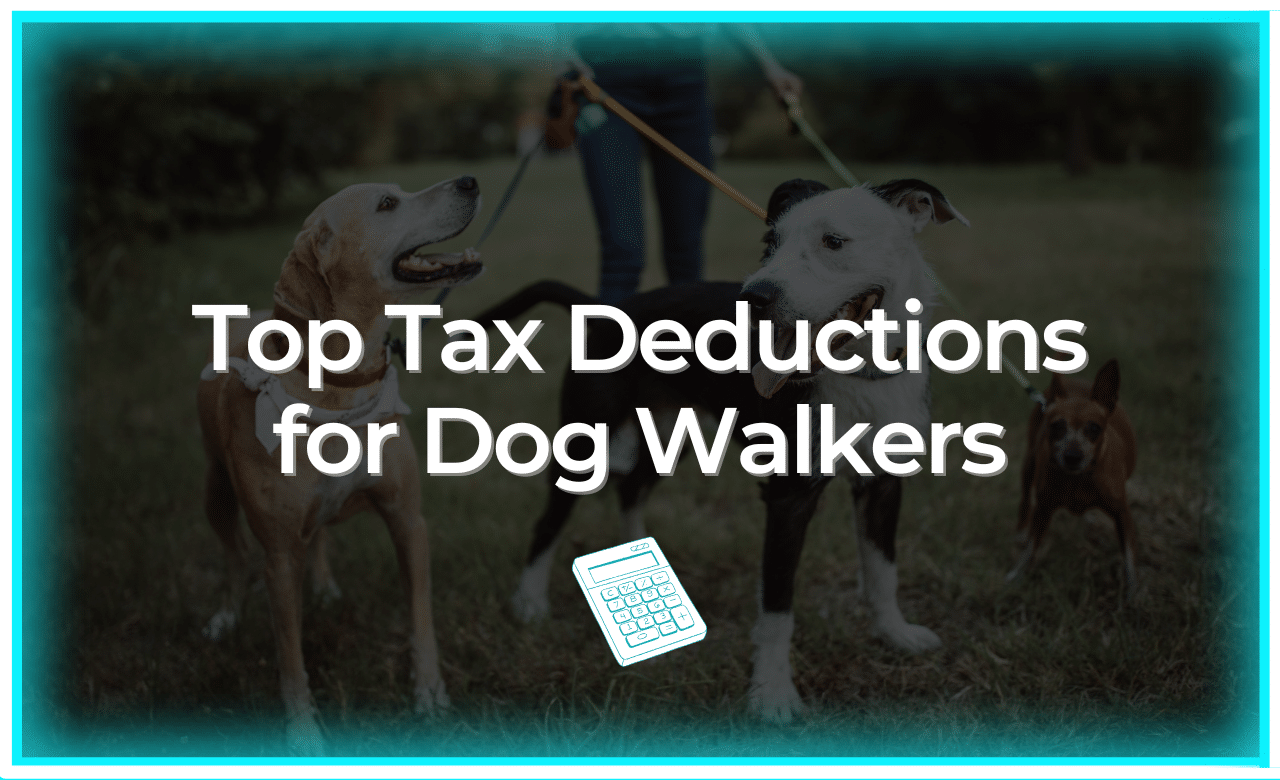Hi, I’m Bette Hochberger, CPA, CGMA. If you’re a dog walker, you may not realize that you can take advantage of various tax deductions to help reduce your taxable income. Whether you walk dogs as a full-time gig or a side hustle, understanding what expenses you can deduct is essential for maximizing your earnings. In today’s #TaxTipTuesday, we’ll explore the key deductions available for dog walkers and how you can benefit from them.
Vehicle Expenses
If you use your vehicle to travel to different locations for dog walking, you can deduct related expenses. There are two methods for claiming vehicle expenses:
– Standard Mileage Rate: You can deduct a specific amount per mile driven for business purposes. For 2024, the IRS standard mileage rate is 67 cents per mile.
– Actual Expenses: You can also deduct actual expenses related to your vehicle, such as gas, maintenance, insurance, and depreciation. It’s important to keep detailed records of all expenses spent.
Supplies and Equipment Deductions
As a dog walker, you may need various supplies and equipment to do your job effectively. Deductible items can include:
– Leashes and Collars: New leashes, harnesses, and collars for the dogs you walk.
– Dog Treats and Toys: Items used to train or reward the dogs during walks.
– Waste Bags: Essential for cleaning up after the dogs.
Make sure to keep receipts for all purchases for proof!
Advertising and Marketing Costs
If you promote your dog walking services through advertisements, you can deduct those expenses. This includes:
– Business Cards: Costs associated with designing and printing business cards.
– Online Advertising: Expenses for running ads on social media or local websites.
– Website Costs: If you maintain a website to promote your services, you can deduct hosting fees and domain registration.
Training and Education
Investing in your skills and knowledge can benefit your dog walking business! You may deduct expenses related to:
– Workshops and Courses: Fees for attending dog training or pet care workshops.
– Certifications: Costs associated with obtaining certifications in pet first aid or dog training.
These investments can enhance your services and make you more marketable.
Home Office Deduction
If you operate your dog walking business from home, you might qualify for a home office deduction. To qualify, your home office must be used exclusively for your business. Deductible expenses can include:
– Portion of Rent or Mortgage Interest: A percentage of your housing costs based on the space used for your business.
– Utilities: A portion of your utility bills, such as electricity and internet, that supports your business activities.
Keep detailed records of your home office space and related expenses.
Insurance Premiums
If you carry insurance that protects your dog walking business, such as liability insurance, you can deduct those premiums. This coverage can safeguard you against potential claims and legal issues, making it a necessary business expense.
Professional Services
If you hire professionals to assist with your business, such as accountants or legal advisors, those fees are also deductible. Investing in professional services can help you manage your finances and ensure compliance with tax regulations.
As a dog walker, it’s important to understand the various tax deductions available to you. By keeping accurate records and staying informed about deductible expenses, you can significantly reduce your taxable income and maximize your earnings. Always consult with a tax professional to ensure you’re taking advantage of all available deductions and complying with tax laws.
As always, stay safe, and I’ll see you next time!










